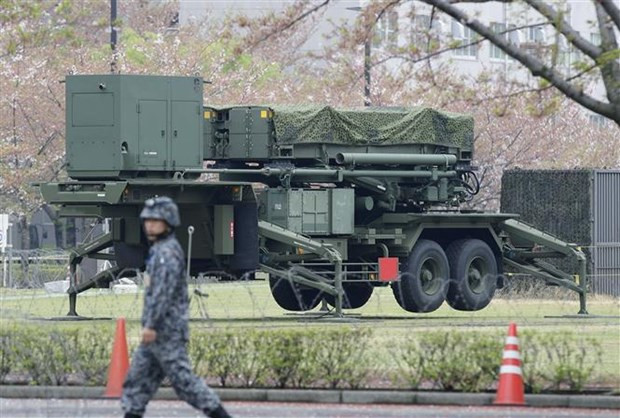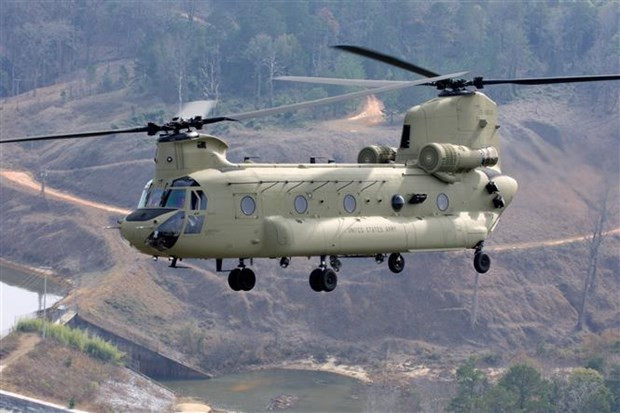According to Reuters, since Japan announced its historic 43.5 trillion yen defense spending plan, the yen has lost 10% of its value against the US dollar, forcing Tokyo to scale back its ambitious purchasing plan.

According to Reuters news agency, the depreciation of the yen is forcing Japan to scale back its five-year defense spending plan worth 43.5 trillion yen.
Since the historic plan was announced in December, the yen has lost 10 percent of its value against the dollar, forcing Tokyo to scale back its ambitious defense spending plan, which was estimated at the time to cost $320 billion, sources said.
Reuters interviewed three government officials with direct knowledge of defense procurement and five industry sources. The sources said Japan would start cutting aircraft purchases in 2024, the second year of the plan, due to the weak yen.
Details of Japan’s cuts to military purchases due to currency fluctuations have not been reported. The sources, who have attended multiple meetings on procurement, requested anonymity.
Tokyo assumed an exchange rate of 108 yen to the dollar — the rate last traded in the summer of 2021 — when it began planning its purchases in December, according to sources. By early November, the currency had fallen in value, leaving Japan with 151 yen to the dollar.
The Bank of Japan on Tuesday took a small step toward ending its decades-long monetary stimulus — which has sent the yen plunging — by tweaking its measures to control bond yields.
Unlike major companies that do business overseas, Japan’s Defense Ministry does not hedge against currency fluctuations, meaning it has little room to mitigate the rising yen costs of Tomahawk cruise missiles and F-35 stealth fighters, a government official said.
“The impact is modest at the moment. But a sustained depreciation of the yen will certainly impact Japan’s plans, forcing cuts and delaying important deals,” said Johnstone, a former National Security Council director for East Asia in the Biden administration, Reuters reported.
Japan's Defense Ministry said it would not discuss details of the procurement plan when contacted for comment. The U.S. Embassy in Tokyo said it could not comment, while the Pentagon did not immediately respond to a request for comment.
Japanese Prime Minister Fumio Kishida described the buildup of Japan's largest defense force since World War II as a “turning point in history.”
In December, Mr Kishida pledged to double annual defence spending to 2% of gross domestic product (GDP) - a move that would make Japan the world's third-largest military spender and was seen by lawmakers and analysts as unlikely until two years ago.
With spending power cut, Japan has decided to prioritize spending on advanced US-made frontline weapons, such as missiles, sources said. That means less money for support aircraft and other secondary kits - much of which are made by Japanese companies.
Defense Ministry officials discussed an order for 34 twin-rotor Chinook transport helicopters at a cost of about 15 billion yen each in December, two sources said.

In the defense budget request for the year starting April 2024 released in August, that order was halved — to 17 — as the cost of each aircraft has risen by about 5 billion yen each since December.
About half of that increase was due to the weak yen, a government source said.
The aircraft is assembled by Kawasaki Heavy Industries under license from Boeing Co. A Kawasaki spokesman confirmed that the price increase has led to a reduction in Chinook orders.
Japan also scrapped plans to buy two ShinMaywa Industries US-2 amphibious planes for search and rescue missions after the price per plane nearly doubled to 30 billion yen from three years ago, two sources said.
“The price has increased significantly, which is due to the weaker yen and inflation which has pushed up costs significantly,” a company spokeswoman said. She declined to comment on whether the Defense Ministry had canceled the seaplane order.
According to Reuters, a Defense Ministry spokesman confirmed that the companies sent a letter to Defense Minister Minoru Kihara on October 25, calling on the government to proceed with defense procurement as planned.
Defense companies will have a hard time getting more money because the government will want to delay adding to the 43 trillion yen plan to see if the currency situation changes, said Kevin Maher at NMV Consulting in Washington, who heads the Japan Office at the US State Department.
According to Vietnam+